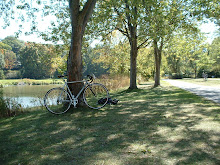How are we wasting it? Well - one primary way is by eating too much meat.
--------
Two global trends have added to the pressure on water. Both are likely to accelerate over coming decades.

The first is demography. Over the past 50 years, as the world’s population rose from 3 billion to 6.5 billion, water use roughly trebled. On current estimates, the population is likely to rise by a further 2 billion by 2025 and by 3 billion by 2050. Demand for water will rise accordingly.
Or rather, by more. Possibly a lot more. It is not the absolute number of people that makes the biggest difference to water use but changing habits and diet. Diet matters more than any single factor because agriculture is the modern Agasthya, the mythical Indian giant who drank the seas dry. Farmers use about three-quarters of the world’s water; industry uses less than a fifth and domestic or municipal use accounts for a mere tenth.
Different foods require radically different amounts of water. To grow a kilogram of wheat requires around 1,000 litres. But it takes as much as 15,000 litres of water to produce a kilo of beef. The meaty diet of Americans and Europeans requires around 5,000 litres of water a day to produce. The vegetarian diets of Africa and Asia use about 2,000 litres a day (for comparison, Westerners use just 100-250 litres a day in drinking and washing).
So the shift from vegetarian diets to meaty ones—which contributed to the food-price rise of 2007-08—has big implications for water, too. In 1985 Chinese people ate, on average, 20kg of meat; this year, they will eat around 50kg. This difference translates into 390km3 (1km3 is 1 trillion litres) of water—almost as much as total water use in Europe.
The shift of diet will be impossible to reverse since it is a product of rising wealth and urbanisation. In general, “water intensity” in food increases fastest as people begin to climb out of poverty, because that is when they start eating more meat. So if living standards in the poorest countries start to rise again, water use is likely to soar.

Moreover, almost all the 2 billion people who will be added to the world’s population between now and 2030 are going to be third-world city dwellers—and city people use more water than rural folk. The Food and Agriculture Organisation reckons that, without changes in efficiency, the world will need as much as 60% more water for agriculture to feed those 2 billion extra mouths. That is roughly 1,500km3 of the stuff—as much as is currently used for all purposes in the world outside Asia.

1 comment:
I became vegetarian partially for the compassionate reasons, but water use is one of the most compelling arguments.
I'm probably preaching to the choir (or for the vegans out their, some sort of Super Choir) but it wasn't a hard lifestyle change to make.
Post a Comment